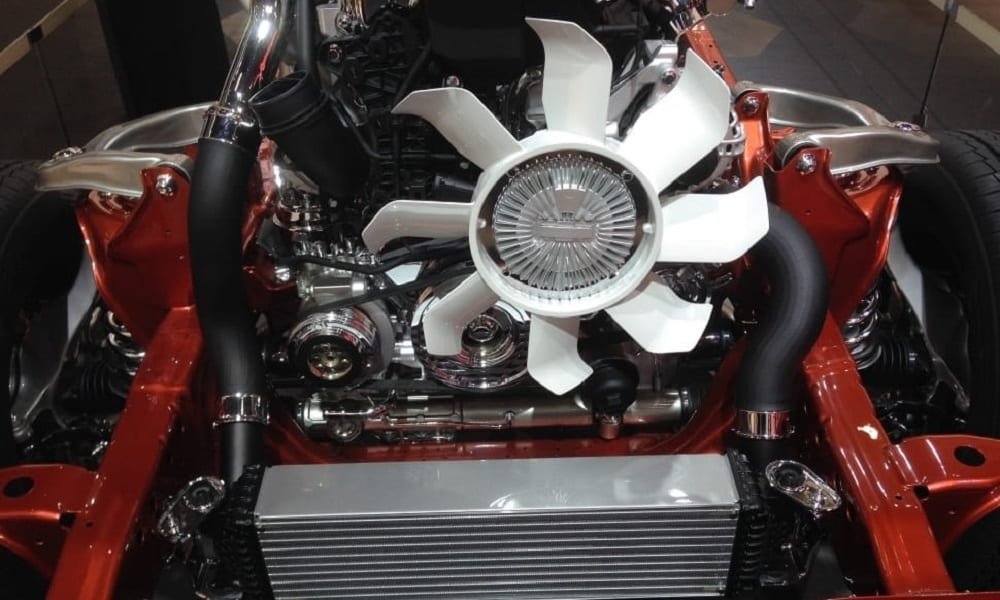From automobile engines to industrial machinery, water is a typical coolant utilized in numerous applications. However, you may need to how long can you use water as a coolant in your car before it becomes ineffective or potentially harmful. In this article, we will explore the factors that determine how long you can use water as a coolant and what steps you can take to ensure its effectiveness.
Table of Contents
ToggleRemember, use water as a coolant only when it is an emergency.
Firstly, it’s important to understand why water is used as a coolant in the first place. Coolant is a substance that is circulated through a system to absorb and dissipate heat, preventing the system from overheating. Water is an excellent coolant because it has a high specific heat capacity, meaning it can absorb a lot of heat without a significant increase in temperature. Water is also cheap, widely available, and non-toxic, making it an ideal choice for many applications.
However, There are some significant limitations to using water as a coolant. One of the main issues is that water can freeze at low temperatures, which can cause damage to the system it’s being used in. This is why many automotive cooling systems use a mixture of water and antifreeze to prevent freezing. Another issue is that water can cause corrosion and rusting in some metal components, particularly if the water is hard or contains impurities.
So, how long can water be used as a coolant?
The answer to this question depends on several factors, including the quality of the water, the temperature of the system, and the length of time the water has been in use.
Quality of Water
The quality of the water used as a coolant is an important factor to consider. Hard water, which contains high levels of minerals such as calcium and magnesium, can cause scaling and corrosion in the system. This can lead to blockages, reduced efficiency, and even system failure. In contrast, soft water, which has had these minerals removed, is less likely to cause these issues.
It’s also important to consider the purity of the water. Water that contains impurities, such as dirt, debris, or chemicals, can cause damage to the system and reduce the effectiveness of the coolant. Water that has been treated to remove these impurities is less likely to cause problems.
To know about how to measure and evaluate water quality, check here.
The Temperature of the System
The temperature of the system being cooled is another important factor to consider. Water can only absorb a certain amount of heat before it becomes too hot to effectively cool the system. If the temperature of the system is too high, the water may become ineffective as a coolant and you should not use it. In some cases, the water may even boil and turn to steam, which can cause damage to the system.
Length of Time in Use
The length of time the water has been in use is another factor to consider. Over time, the water can become contaminated with impurities, such as dirt, debris, and bacteria. This can reduce the effectiveness of the coolant and potentially cause damage to the system. We recommend replacing water-based coolants every two to three years to ensure their effectiveness.
Maintenance and Treatment
Regular maintenance and treatment can help extend the life of water-based coolants. Flushing the system with clean water and adding corrosion inhibitors can help prevent rust and corrosion, prolonging the life of the coolant. Adding antifreeze to the water can also prevent freezing in cold temperatures, protecting the system from damage.
When to Replace Water-Based Coolant?
There are several signs that it may be time to replace water-based coolants. If the coolant appears dirty or discolored, it may be contaminated with impurities and no longer effective. If the system is running hot or overheating, it may be a sign that the coolant is no longer able to effectively absorb and dissipate heat. If the system is making unusual noises, it may be a sign of damage or blockages caused by the coolant.
In addition to these signs, it’s important to follow the manufacturer’s recommendations for coolant replacement. This can vary depending on the make and model of the system, so it’s important to consult the owner’s manual or speak to a professional mechanic.
It’s also important to note that using water as a coolant may not be appropriate for all applications. In some cases, such as in high-performance engines or industrial machinery, specialized coolant may be necessary to ensure optimal performance and prevent damage to the system.
Frequently Asked Questions (FAQs)
Is water a safe coolant to use?
Yes, water is generally safe to use as a coolant. It is non-toxic and widely available. However, it’s necessary to consider the quality of the water and any potential impurities or contaminants that could cause damage to the system.
Can I use only water as a coolant in my car?
While you use water as a coolant in your car, it’s not recommended to use it alone. You should use a mixture of water and antifreeze to prevent freezing in cold temperatures and to provide additional protection against rust and corrosion.
How often should I replace water-based coolant?
You should replace the water-based coolant every two to three years to ensure its effectiveness. However, it’s good to follow the manufacturer’s recommendations for your specific system.
Can I mix different types of coolant?
We generally do not recommend mixing different types of coolant. Different types of coolant can have different chemical compositions and mixing them can cause damage to the system. It’s best to use the same type of coolant recommended by the manufacturer.
Can water cause damage to the cooling system?
Water can cause damage to the cooling system if it contains impurities or if the temperature of the system is too high. Hard water, which contains high levels of minerals, can cause scaling and corrosion, while soft water is less likely to cause these issues. Regular maintenance and treatment can help prevent damage to the system.
Can I use water as a coolant in high-performance engines?
While you use water as a coolant in some high-performance engines, specialized coolant is necessary to ensure optimal performance and prevent damage to the system. It’s best to consult a professional to determine the best coolant for your specific application.
Conclusion
Although water is a versatile and effective coolant for many applications, now you know how long can you use water as a coolant in your car. However, the quality of the water, the temperature of the system, and the length of time in use can all affect its effectiveness. Regular maintenance and treatment can help prolong the life of water-based coolants, but it’s important to follow the manufacturer’s recommendations for replacement. If you are unsure about the suitability of water as a coolant for your application, it’s always best to consult a professional.
Do you want to know the process of removing Aftermarket Tint from your car window? Here you can read our full article.





